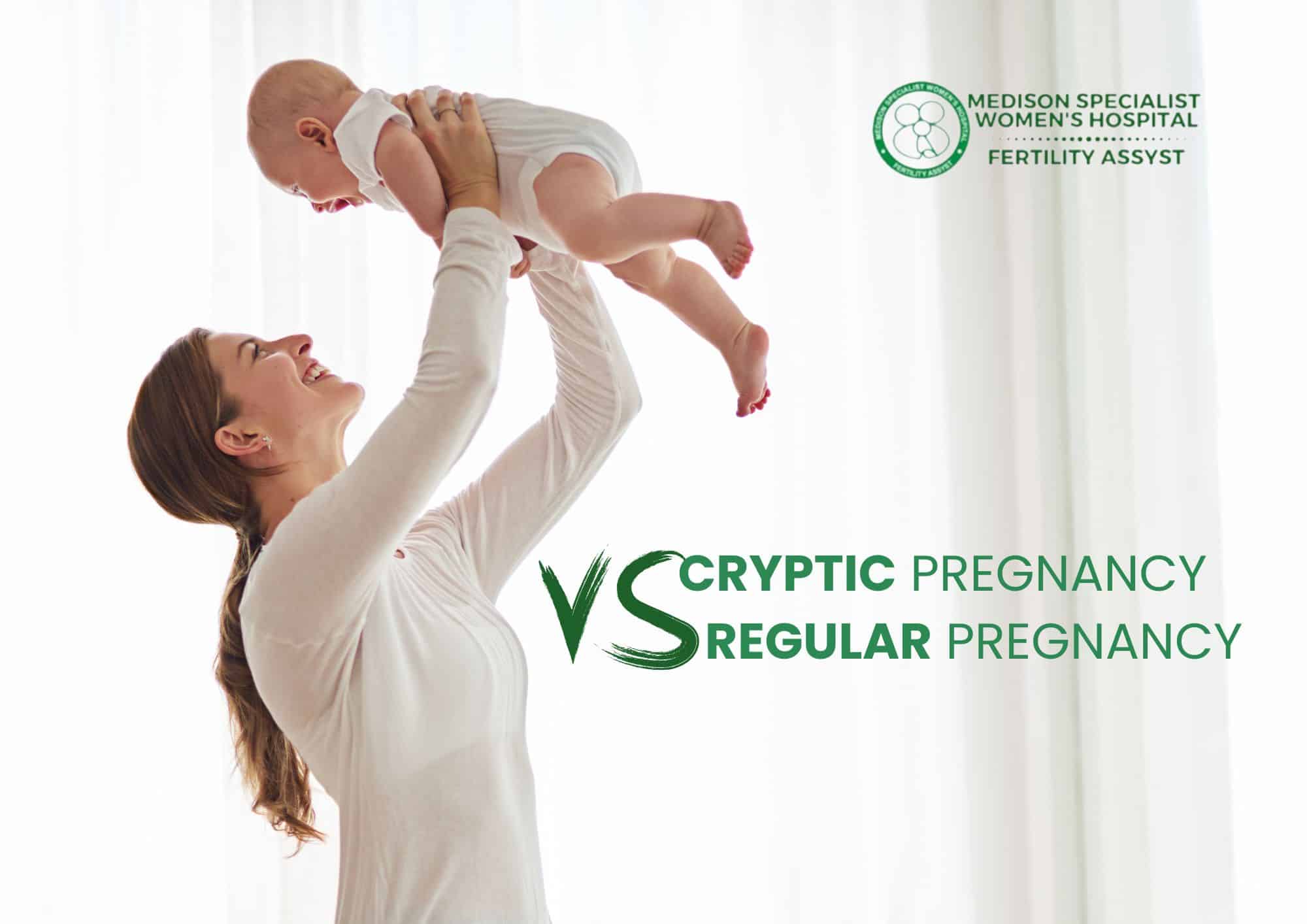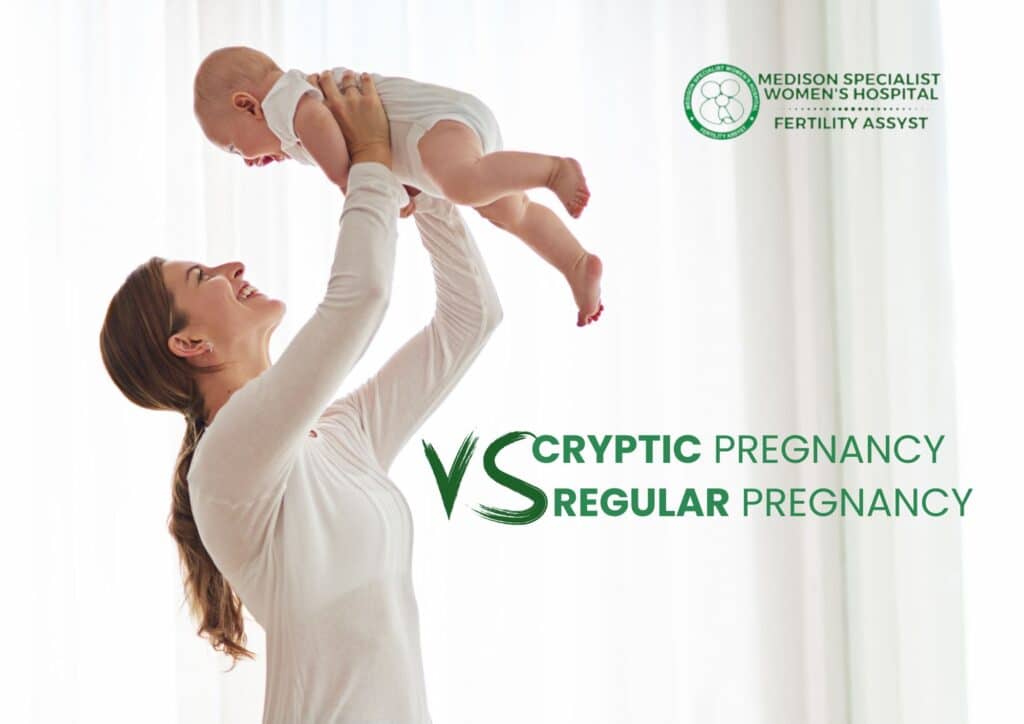Cryptic Pregnancy vs. Regular Pregnancy
Clear signs like missed periods, morning sickness, and a growing belly typically mark pregnancy. But what if a woman doesn’t realize she’s pregnant, sometimes not until labor begins? This phenomenon, known as cryptic pregnancy, baffles both mothers and doctors. At Medison Hospital, we’re shedding light on how cryptic pregnancies differ from regular ones—and why they happen.
What Is a Cryptic Pregnancy?
A cryptic pregnancy (also called a “stealth pregnancy”) occurs when a woman is unaware she’s pregnant until late in gestation or even until delivery. Unlike regular pregnancies, which show obvious symptoms, cryptic pregnancies often fly under the radar due to atypical hormonal responses or misinterpreted signs.

Key Differences Between Cryptic and Regular Pregnancy
| Factor | Regular Pregnancy | Cryptic Pregnancy |
| Awareness | Woman knows she’s pregnant (confirmed by tests/symptoms). | Woman doesn’t realize she’s pregnant, sometimes until birth. |
| Symptoms | Missed periods, nausea, breast tenderness, and weight gain. | Symptoms are absent, mild, or mistaken for other conditions (e.g., stress, IBS). |
| Hormone Levels | hCG (pregnancy hormone) rises detectably. | hCG may be unusually low, delaying positive tests. |
| Belly Growth | Noticeable bump by mid-pregnancy. | Minimal or no visible bump due to fetal position or body shape. |
| Fetal Movement | Recognized as kicks after 18–20 weeks. | Mistaken for gas or muscle twitches. |
| Ultrasound Detection | Clearly shows fetus by 6–8 weeks. | May not detect fetus early due to tilted uterus or late ovulation. |
Why Do Cryptic Pregnancies Happen?
- Low hCG Levels: Some women produce less pregnancy hormone, leading to false-negative tests.
- PCOS or Irregular Periods: Pre-existing hormonal imbalances mask missed periods.
- No Typical Symptoms: No nausea, fatigue, or breast changes, or symptoms resemble other issues (e.g., stress, bloating).
- Fetal Positioning: Baby grows toward the back (posterior), minimizing belly protrusion.
- Psychological Factors: Denial or subconscious avoidance (rare but possible).
Real-Life Cases
- A woman attributed her weight gain to stress and only discovered her pregnancy during labor.
- Another continued having light periods and tested negative until her third trimester.
When to Suspect a Cryptic Pregnancy
- You’ve had unprotected sex, but keep testing negative.
- Your periods are irregular, but you feel “off.”
- You experience unusual fatigue or digestive changes without explanation.
Note: If in doubt, request a blood test or ultrasound for clarity.
Risks of Undetected Pregnancy
- Delayed prenatal care increases risks for preterm birth or complications.
- Emotional shock upon late discovery.
- Higher chance of denial-related distress.
While cryptic pregnancies are rare (estimated 1 in 2,500 births), they highlight how complex the body can be. At Medison Hospital, we emphasize listening to your body and seeking medical advice if something feels unusual, even if tests say otherwise.
Could you be pregnant without knowing? [Consult our experts] for confidential guidance.

